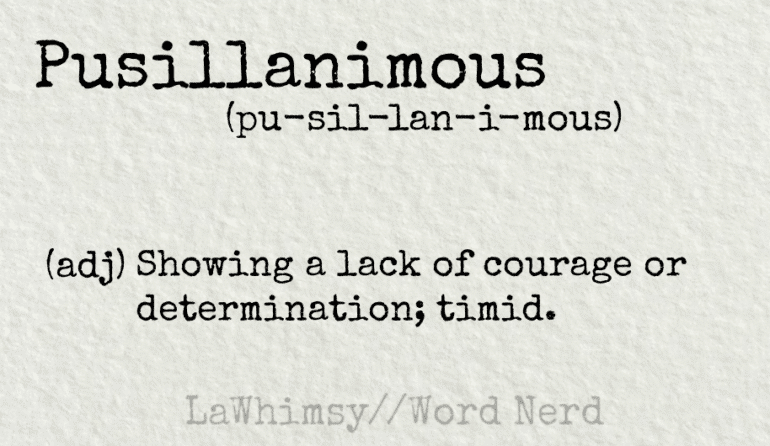We’ve all heard the phrase “don’t be a pussy” used to call someone out for being scared or timid. But what if I told you that this blunt, modern insult actually has roots in a much fancier, older word: pusillanimous?

“Pusillanimous” (pronounced pyoo-sil-AN-uh-muhs) is a classic English adjective meaning “showing a lack of courage or determination; timid.” It comes from the Latin pusillanimis, which breaks down into pusillus (meaning “very small” or “weak”) and animus (meaning “spirit” or “mind”). Put together, it literally means “small-spirited” — someone with a tiny or weak spirit.
Now, how does this relate to “pussy”? While the two words don’t share a direct linguistic line, they do share a connection in meaning. “Pussy” in the insult sense originally came from slang for “cat,” but then became a crude euphemism for female genitalia, often unfairly linked to weakness or softness in a sexist way. Over time, the phrase “don’t be a pussy” evolved as a blunt, accessible way to call someone timid or cowardly—basically a street-level synonym for “pusillanimous.”

So, while “pussy” might sound like a casual put-down, it’s actually echoing a centuries-old idea of smallness of spirit—the very thing “pusillanimous” means in a more scholarly fashion.
Next time someone tells you not to be a “pussy,” you can impress them by dropping the word “pusillanimous” and reminding them that courage has always been about spirit, not just bravado.















